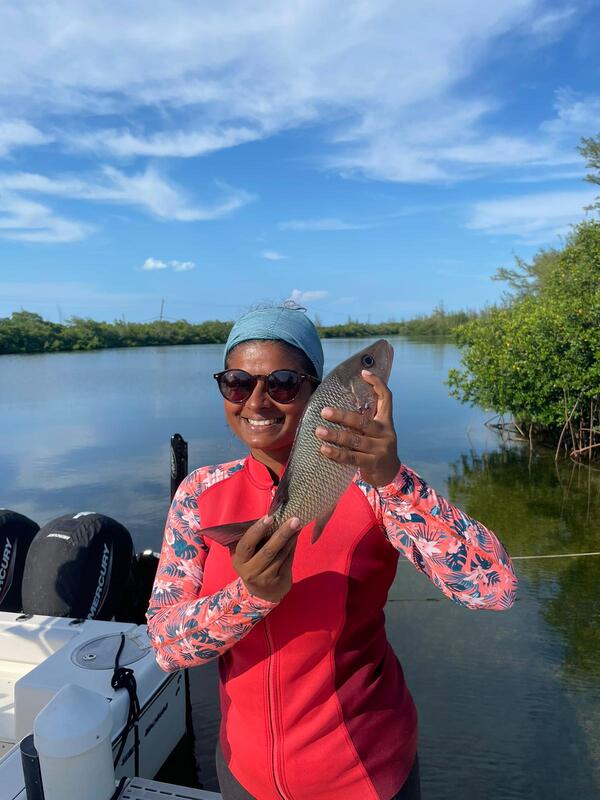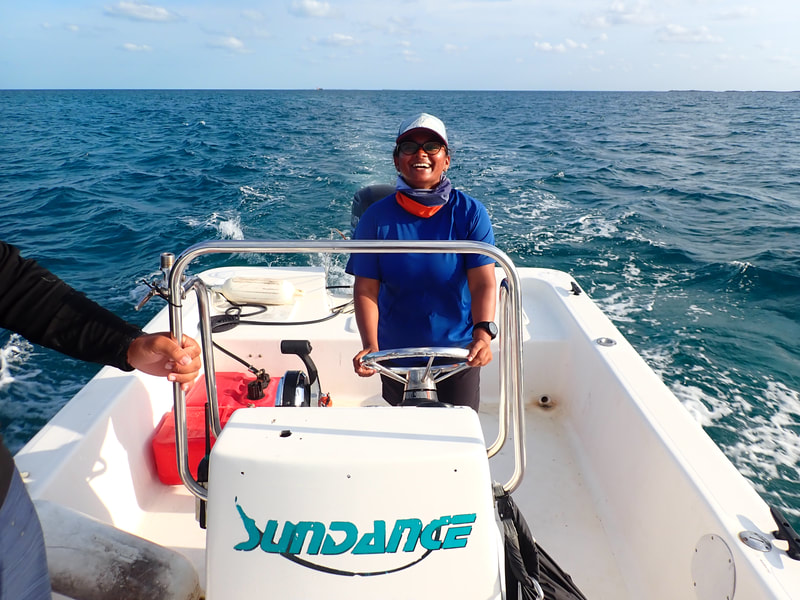|
In the quiet corridors of memory, I often find myself revisiting the vivid tapestry of my journey as a shark researcher. As I sit down to reflect on my journey through the Minorities in Shark Sciences (MISS) fellowship, I am struck by the profound shift in perspective that I have experienced. My name is Meghana, and I am a first-generation graduate from a conservative Indian middle-class family. My path as a shark researcher began in the bustling fish markets of India, where I predominantly worked with thousands of dead sharks and rays, collecting fisheries dependent data and gaining insights into the dynamics of overharvesting, livelihood dependency, and the role these threatened species played in our ecosystems. The MISS fellowship opened doors to a whole new realm of shark research with the internship opportunity at the Bimini Shark Lab, from participating in research activities in Florida Keys to sharing space with the curious beings in Bimini waters. This experience allowed me to witness firsthand the developments and advances in marine sciences and fishing practices in developed countries, contrasting them with the situations I had encountered back home. One of the most remarkable moments during the fellowship was my first encounter with live sharks while assisting with shark work-ups in Florida keys. The bonnet hammerhead being the first to see. It was an eye-opening experience to observe these creatures in their natural environment and engage in practices that contribute to shark sciences as part of fisheries independent research. Additionally, setting fishing gears like drum lines and longlines as part of this research methodology provided me with a deeper understanding of the gears and techniques employed to study these animals alive. ... Read the rest below!
0 Comments
Leave a Reply. |
Archives
May 2024
Categories |
||||||
About missMISS provides a community and funded opportunities for gender minorities of color who wish to enter the field of shark sciences. We aim to show that there are many gender minorities of color succeeding in and interested in this field.
We fundraise and apply for grants to create paid opportunities to attempt to knock down the financial barrier into shark sciences. We encourage other organizations in our field to do the same. |
Jump to:Our Story
Become a Member Friends of MISS Workshops Sponsorship Program Donate 2023 Annual Report 2023-2026 Strategic Plan Results Framework Final Report MISS is a registered US nonprofit, tax-exempt corporation under 501 (c)(3) of the Internal Revenue Code (EIN: 85-2192211).
|
CONTACT USMailing Address:
PO Box 10493 Bradenton, FL 34282 © COPYRIGHT 2022. Minorities in Shark Sciences Inc.
|



 RSS Feed
RSS Feed
